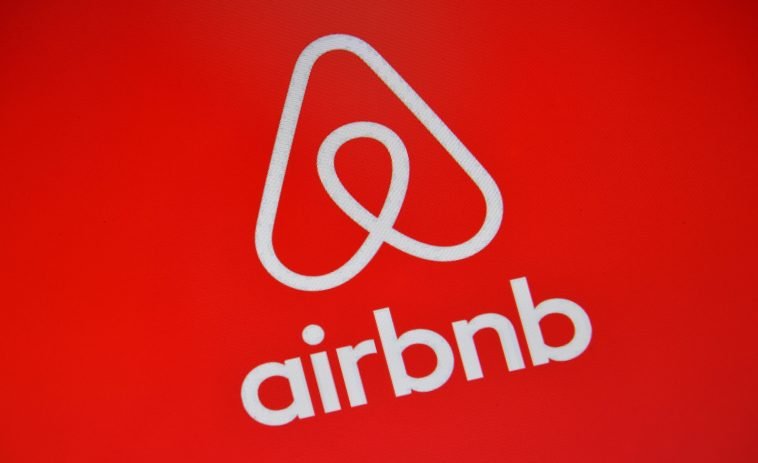Introduction.
Airbnb has become so much more than just a platform for short getaways—it’s now a go-to choice for people looking for longer stays, too.
Whether you’re a digital nomad seeking a few months in a new city, a remote worker ready for a change of scenery, or even someone between homes, renting on Airbnb long term can be a flexible and practical solution.
But renting an Airbnb for a month or more isn’t quite like booking a weekend stay. There are different costs, host expectations, rules, and strategies for getting the best experience.
So let’s get into what you need to know about finding and securing a long-term Airbnb rental, how much it might cost, and the pros and cons to consider before committing.
What is Long-Term Renting on Airbnb?
Long-term rentals on Airbnb usually refer to stays of 28 days or more. These stays often come with discounted rates and can sometimes include utilities and amenities that make them more like a “home” than a typical vacation spot.
Airbnb even has a separate section on its website for long-term stays, making it easier to search for options that meet your needs and budget.
This type of rental appeals to a lot of people because it combines the convenience of traditional rentals with the flexibility of booking on a platform designed for easy use.
If you’re someone who doesn’t want the hassle of a year-long lease or would like to hop around from city to city, this could be a perfect fit.
How Do I Find the Right Long-Term Airbnb?
The process of finding a long-term Airbnb starts with a clear idea of what you need, both in terms of budget and amenities. Here’s a step-by-step guide to help make the search process easier:
1. Set Your Budget.
Long-term Airbnb usually cost less per night than short-term rentals, but rates can vary widely depending on location, season, and demand.
Keep in mind that while some hosts offer discounts for monthly stays, this might not cover all expenses, such as utilities or extra services like cleaning.
2. Use Filters to Narrow Down Your Search.
Airbnb’s filters can be very helpful, allowing you to specify preferences like number of bedrooms, Wi-Fi quality, kitchen facilities, and even pet-friendliness.
Try to use as many filters as you need—this can save a lot of time by eliminating options that don’t meet your criteria.
3. Read the Reviews Carefully.
When staying for an extended period, it’s crucial to know if past guests had a positive experience. Reviews can give insights into the host’s responsiveness, the accuracy of the listing, and any quirks or issues with the property.
4. Message Hosts Directly.
Especially with longer stays, it’s wise to connect with hosts to confirm any details and make sure both parties are on the same page.
You might be able to discuss discounts, clarify house rules, or simply get a feel for what the space will be like.
5. Understand Cancellation Policies.
Airbnb’s cancellation policies vary depending on the host and the type of listing. Long-term rentals usually come with stricter policies.
Double-check these details to avoid surprises, as cancelling can sometimes mean losing a significant portion of your payment.
How Much Does a Long-Term Airbnb Rental Cost?
Costs can vary a lot based on the location, property type, and length of stay. Here’s a rough breakdown of some common expenses:
- Monthly Rent: This is often discounted, with hosts sometimes offering up to 30% off the standard nightly rate for longer stays.
- Utilities: Some hosts include utilities like water, gas, and electricity in the rental cost, but not all do. Check the listing or confirm with the host.
- Cleaning Fees: Unlike short-term stays, long-term rentals may include a single upfront cleaning fee or additional fees for regular cleaning services.
- Security Deposits: These are usually higher for long-term stays, but refundable, as long as there’s no damage to the property.
On average, long-term Airbnb rentals can range from $1,200 to $3,000 per month in major cities, but there’s a broad spectrum depending on location.
For instance, staying in New York City or San Francisco might run on the higher end, while smaller cities or towns can be more affordable.
Pros of Renting Airbnb Long-Term
- Flexibility: Long-term Airbnb don’t usually require the same commitment as traditional rentals, so you can move in and out more easily.
- No Furniture Hassle: Most Airbnbs are furnished, which is ideal if you’re not keen on buying or moving furniture.
- All-Inclusive Amenities: Many rentals include essential utilities, internet, and amenities like a fully equipped kitchen or laundry facilities.
- Discounted Rates: Hosts typically offer discounts for longer stays, which can make an extended rental more affordable than you’d expect.
- Flexible Lease Terms: Unlike traditional rentals that often require a 6 or 12-month lease, Airbnb’s month-to-month flexibility suits travelers and temporary residents.
Cons of Renting Airbnb Long-Term
- Higher Costs Than Traditional Rentals: Even with discounts, Airbnb long-term stays might still be pricier than traditional rentals, especially in high-demand areas.
- Stricter Cancellation Policies: Unlike short-term rentals, long-term Airbnb bookings often have limited cancellation options, and refunds may be partial.
- Limited Control Over Utilities: If utilities aren’t included, you might encounter unpredictable costs or limited say in managing usage.
- Variable Standards: Airbnb listings vary widely in terms of comfort, maintenance, and host reliability, so the experience can differ from one place to another.
- No Tenant Rights: Since you’re technically a “guest,” you might not have the same legal protections that you’d have with a traditional rental.
Final Tips for Long-Term Airbnb Rentals
- Check for Internet Speeds: If you’re working remotely, it’s crucial to confirm reliable internet connectivity. Some hosts list their speeds; others might not.
- Ask About Local Laws and Restrictions: Some cities limit long-term Airbnb stays or enforce additional taxes or regulations. Make sure your chosen destination allows long-term rentals and be aware of any extra charges.
- Consider Your Location Carefully: Think about transportation, nearby grocery stores, and proximity to places you’ll want to visit. Long-term stays make these factors more important than for short-term trips.
Conclusion.
Choosing to rent an Airbnb long term is a decision that depends on your needs, lifestyle, and budget.
The flexibility, amenities, and ease of finding a place make it an appealing option for many, but the costs and some unique challenges might be drawbacks.
Would a long-term Airbnb rental suit your living situation, or are traditional rentals still the best choice for extended stays?





GIPHY App Key not set. Please check settings